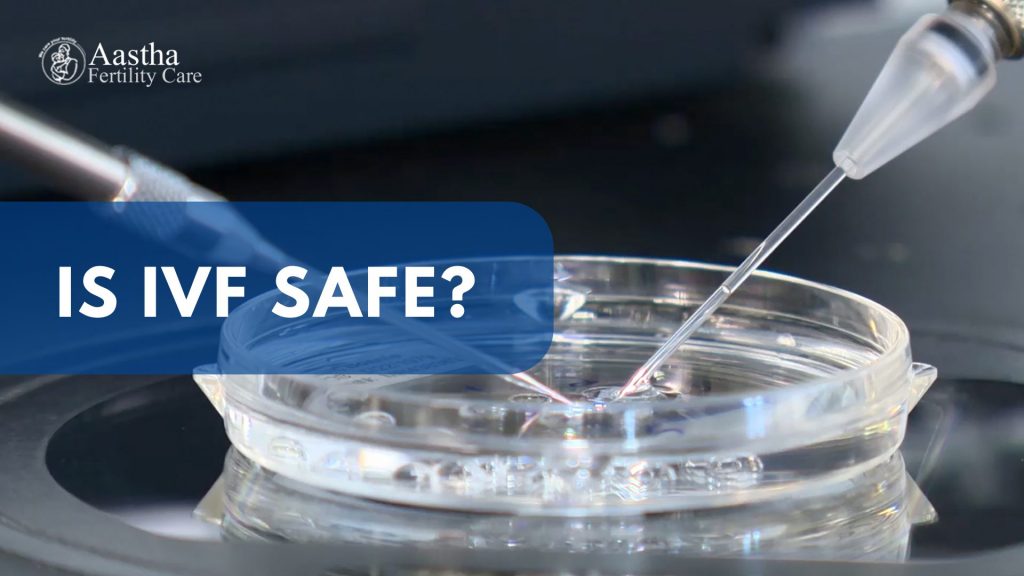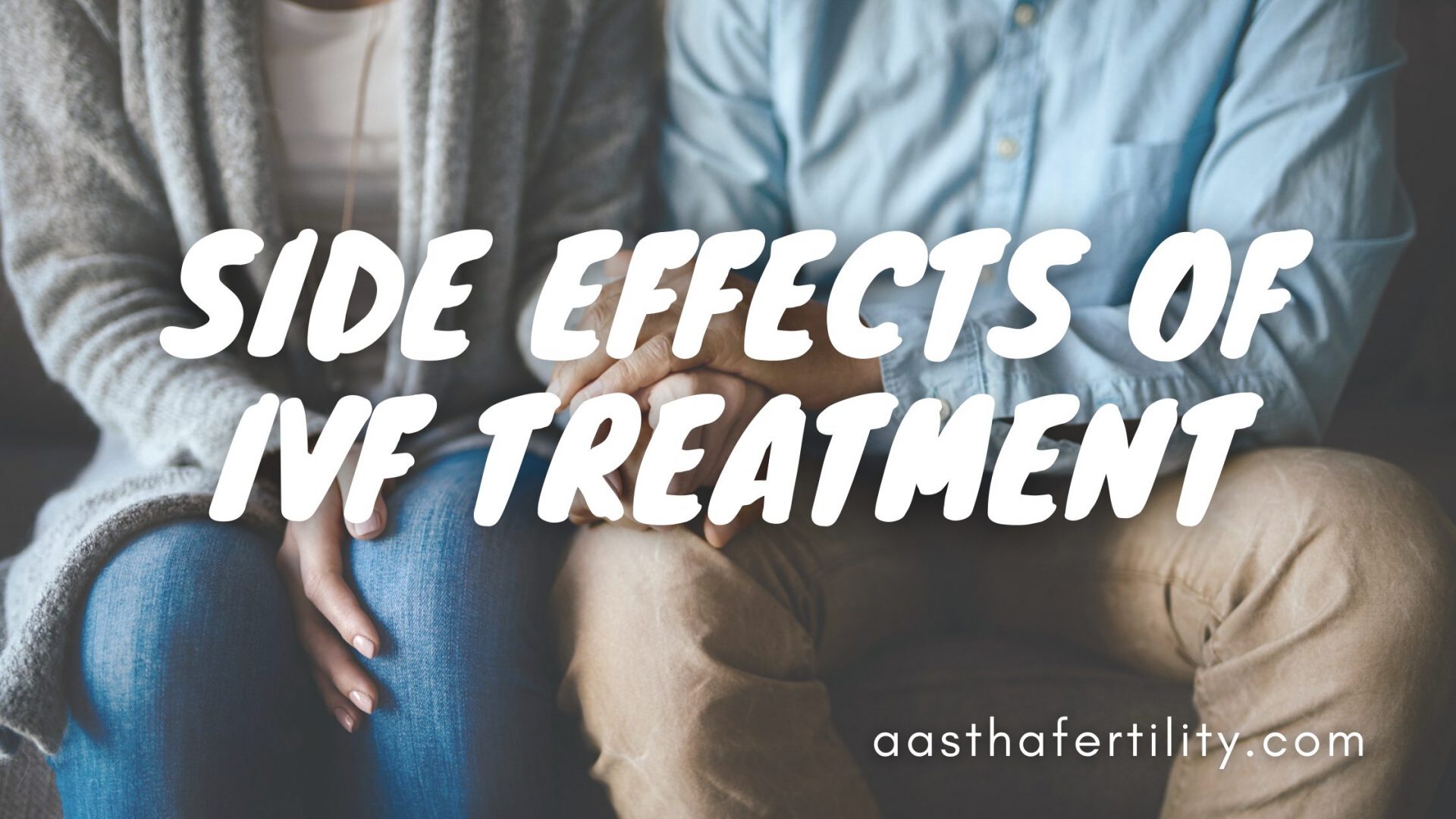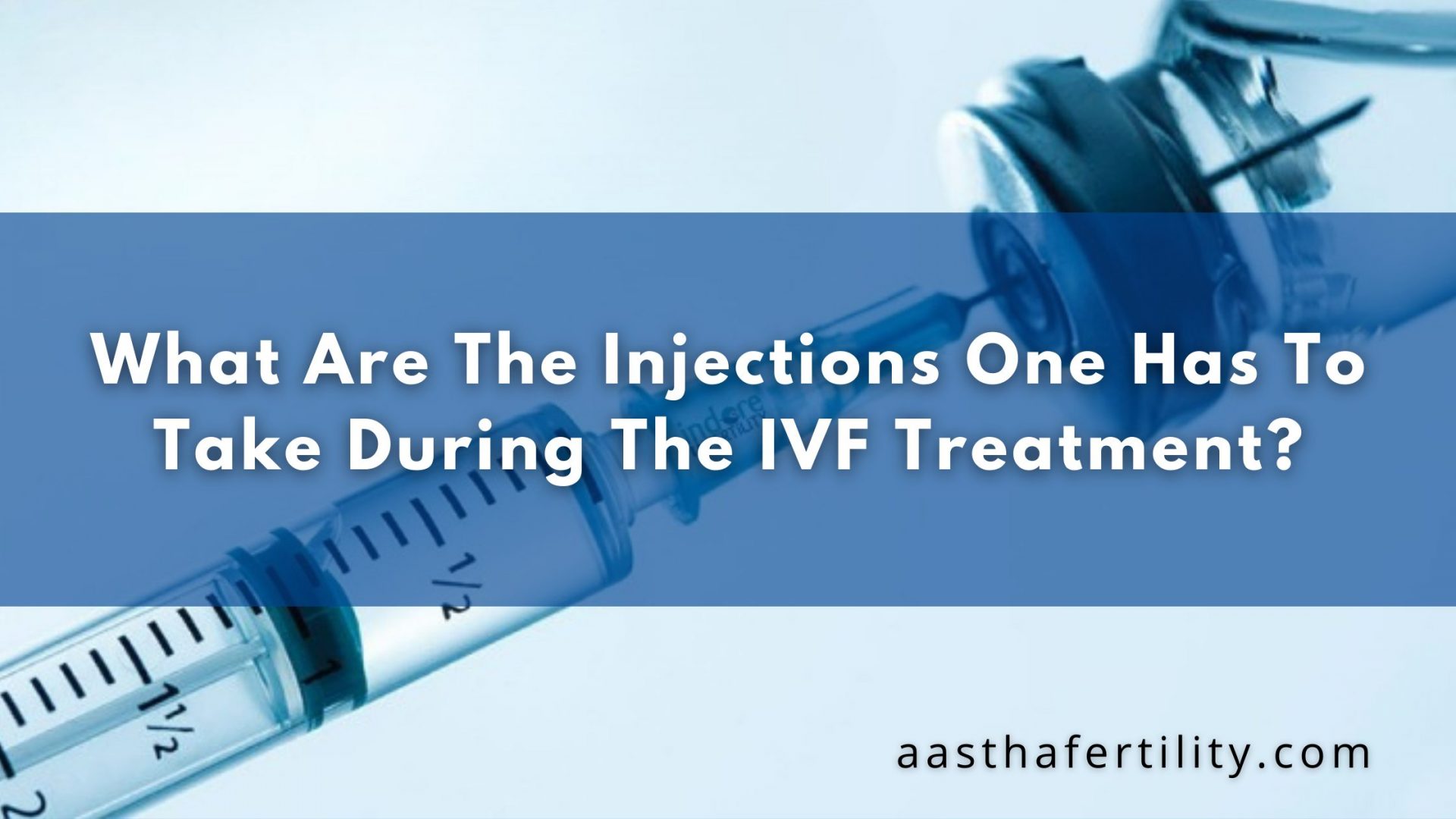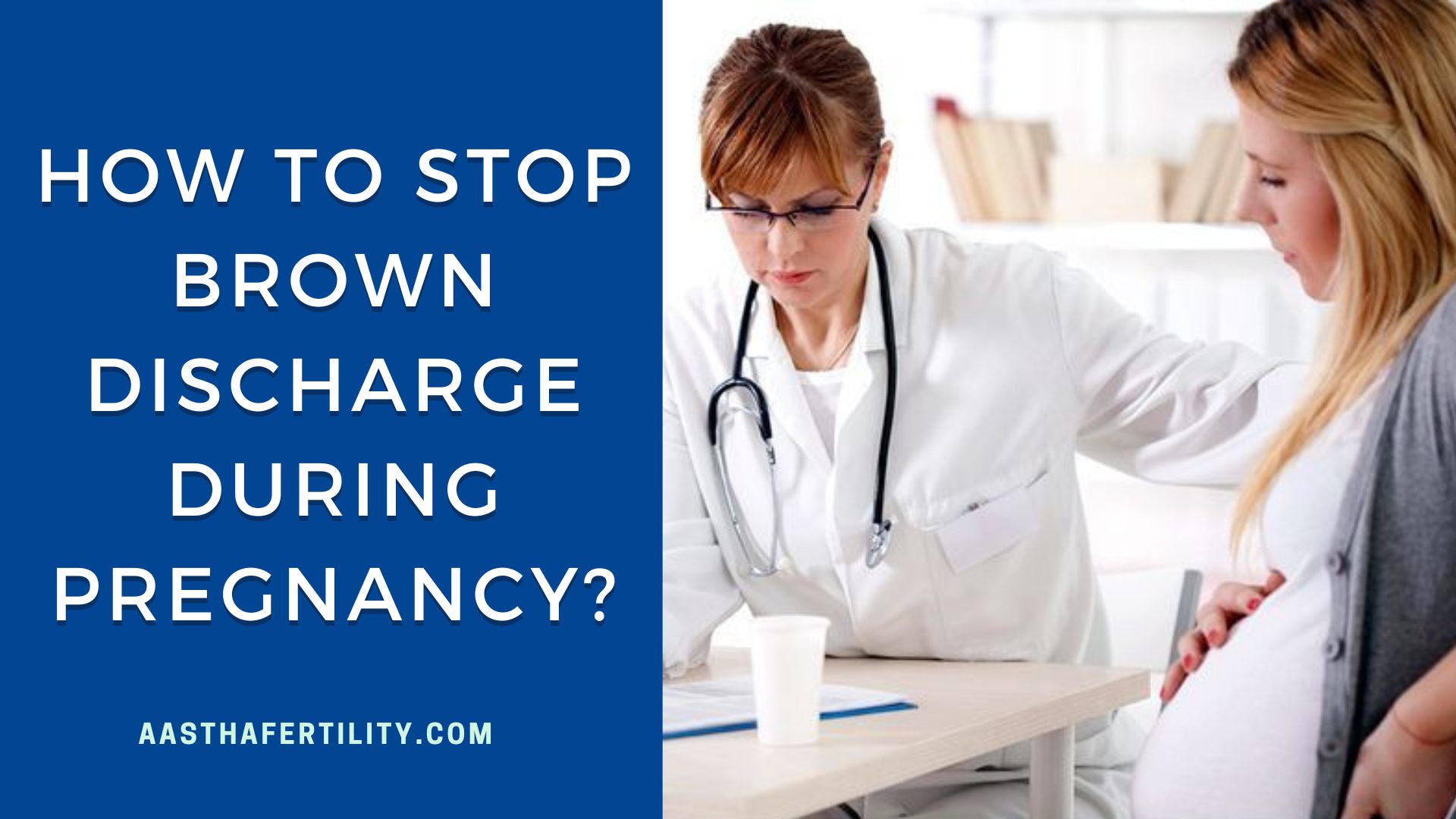Table of Contents
ToggleIVF, or In-Vitro Fertilization, also known as ART, is one of the most effective treatments that has brought hope into many people’s lives. The couple that cannot conceive naturally, the single mom who wants to become a mother, or the couple that does not wish to pass genetic defects to the baby are all provided with the indulgence of becoming parents with IVF.
Very few serious complications are associated with IVF. However, some risks remain with all medical treatments conducted during IVF, like OHSS, endometriosis, heavy bleeding, pelvic infection, penetration of blood arteries, etc.
But if you’re taking all the precautions asked by your IVF specialist, Dr, Namita Kotia, and performing this procedure under the renowned fertility centre, then you need not worry about failure as our experts know how to reduce the risk of IVF Failure.
Throughout this blog, our fertility experts at Aastha Fertility Center will assure you that IVF is safe.
What is IVF?
IVF is also known as In-Vitro Fertilization, where in vitro intimates in the lab, and fertilization means conception. In IVF, eggs are retrieved using a transvaginal needle and combined with cleansed sperm cells in a test tube.
If everything goes as anticipated, the sperm cells will fertilize the few recovered eggs and develop them into embryos. Then, one to two healthy embryos are implanted in the uterus.
There are times when the sperm cells need additional aid during fertilization. IntraCytoplasmic Sperm Injection is an assisted technique of reproduction where one high-quality sperm cell is injected into an egg.
Causes of Infertility that can be Treated with IVF
The following are the causes of infertility that can be treated with IVF:
- Counts of sperm are low
- Uterine problems
- Unexplained fertility issue
- Damage to fallopian tubes
- Ovulation problems
- Antibodies that damage eggs or sperm
- Sperms are unable to penetrate
- Having poor-quality eggs
- Endometriosis
- Parental or maternal genetic disease
What are the Success Rates of IVF?
The success rate of IVF depends on numerous factors:
- What is the type of infertility
- Any past failed IVF
- Are the eggs fresh or frozen
- Are the eggs of a donor or your own
Besides these factors, age is also thought to play a significant role in IVF success rates. For women who are under the age of 35, the success rate of IVF for them is up to 54.4%. In contrast, for women over 40 years, the IVF success rate is upto 26.6%.
However, the IVF specialists at Aastha Fertility with advanced ART have defied the stereotype that age determines success by providing phenomenal success rates to women over 35-40
Is IVF Safe?

IVF (In-Vitro fertilisation) is relatively safe for almost every type of person, regardless of their fertility issue. Those who have undergone this treatment haven’t faced any health issues or pregnancy complications.
Listed below are some of the pointers that may clear up any further queries you may have:
Is IVF Safe for Mother?
Dr. Namita Kotia, an IVF specialist at Aastha Fertility, says IVF is the safest and most effective method of conceiving for mothers. The medicines and injections used in IVF do not have side effects if monitored carefully.
Is IVF Safer than Natural Conception?
The IVF conception poses no threat to the mother’s or newborn child’s wellbeing. In short, babies born through In-Vitro Fertilization are safe and healthy.
Is IVF Safe After 40?
IVF success rates fall with age, but several women in their 40s still have a chance to conceive with their own or donor eggs if given in the best hand (safe IVF center).
IVF Side Effects
| Milder Effects | Severe Effects |
|---|---|
| Nausea | One of the most annoying side effects of IVF treatment is OHSS,i.e. Ovarian Hyper Stimulation Syndrome, which can be mild or severe. |
| Constipation | Multiple Pregnancies (and risk accompanying it) |
| Cramping | Faintness |
| Spotting of blood | Miscarriage (similar to natural conception) |
| Bloating | Ectopic pregnancy |
| Mood swings | Weight-gain |
| Hot Flashes | Bowel or bladder gets damaged |
| Headaches | Kidney failure |
| Breast Tenderness | Severe stomach pain |
| Heavy bleeding | |
| Blood clots | |
| Stress | |
| Shortness of breath |
Pros and Cons of IVF Treatment
IVF’s pros and cons are listed below:
| Pros | Cons |
|---|---|
| In the case of women who have damaged or blocked fallopian tubes, IVF is the most effective method of conceiving a child through their eggs. | High stimulation IVF generates high estrogen levels, which enhances the risk of premature birth in babies |
| The use of IVF can maximise the chances of conceiving for older patients. At Aastha Fertility, we specialize in treating women who are above the age of 50-60 with diminished ovarian reserves. | It is possible to have an ectopic pregnancy at a slightly higher rate. |
| IVF can be extremely successful for women suffering from PCOS who cannot conceive using hormonal therapy (ovulation induction) | IVF can lead to Multiple pregnancies. |
| 1 out of 6 couples suffer from Infertility problems, which remain undetected sometimes even after investigations, called unexplained infertility. But only IVF can detect and resolve this issue. | |
| Women with endometriosis can opt for IVF treatment because it has been proven effective in this situation. | |
| Women suffering from premature ovarian failure can opt for IVF treatment with donor eggs, which often results in great success. |
Are IVF Costs covered under Health Insurance Plans?
The following health insurance plans are available to provide insurance coverage during an IVF procedure:
- Cover for infertility diagnosis
- Cover for infertility diagnosis with Limited Fertility Treatment
- Cover for medication
- Cover for entire IVF treatment
Questions an IVF Patient Must Ask from the Fertility Expert
- What are the tests required before beginning the IVF treatment?
- How many couples undergo this procedure at your facility annually, and how many give birth to a child?
- Is egg donation a part of your program?
- What is the IVF treatment cost with hormone treatment included?
- How many pregnancies occur per embryo transfer?
- Are there any side effects related to this treatment?
- Do I need to get a Preimplantation genetic diagnosis?
How Long Does IVF Take?
Steps taken in IVF procedure are as follows:
- The first step involves the stimulation of hormones, where injections stimulate the women’s ovaries. (1-2 weeks)
- The second step involves egg retrieval, which is carried out using a transvaginal needle. (20-30 minutes of procedure)
- The third step involves embryo development. (2-5 days)
- The fourth step involves embryo transfer, where the embryo is placed inside the woman’s uterus. (2-5 days post egg retrieval)
- The fifth step involves confirming whether IVF was successful by conducting a pregnancy test 2 weeks after the embryo transfer.
- If the pregnancy test is positive, an ultrasound will be performed after two weeks to monitor pregnancy development.
- If the pregnancy test is negative, the woman gets her period and then decides whether to undergo another IVF cycle.
IVF or ICSI: Which is Better?
Some points might help you decide which is right for you:
- In Vitro Fertilization and Intracytoplasmic Sperm Injection are assisted reproductive technology that helps conceive infertile couples.
- In both of these ARTs, eggs are fertilised outside the body in a test tube
- Your medical history and past circumstances could impact your IVF or ICSI success.
- Couples with a female fertility issue should opt for IVF, while those with a male fertility issue should opt for ICSI. Still, when both have fertility issues, IVF with ICSI is recommended.
- The cost of ICSI is more than the cost of IVF.
As a result, it depends on the situation you’re in.
Also, Read IVF ICSI Procedure – Important Things You Need to Know
What are the Costs of IVF?
IVF costs vary from individual to individual based on what kind of treatment you plan to begin.
Please contact us via WhatsApp or drop by our clinic if you have any further questions.
Book your Free Online Consultation now to know more.
Frequently Asked Question
1. After How Many Weeks IVF Pregnancy Is Safe?
According to the experts of Aastha Fertility, IVF pregnancy is safe after 10-15 weeks.
2. Is It Safe To Orgasm During Early Pregnancy Ivf?
Yes, it’s safe to orgasm during early pregnancy IVF until and unless your expert has told you not to.
3. Is It Safe To Fly After Ivf Implantation?
Yes, it is completely safe. No evidence points to any potential risk to either the mother or fetus. For long-duration flights, make sure you take precautions to avoid the development of DVT.
4. How Many Are Ivf Cycles Safe?
No research indicates how many IVF cycles are safe or how many times it is safe to do IVF. But according to the experts of Aastha Fertility, a couple at least needs to have Six IVF cycles to achieve a successful pregnancy.
5. Is Intercourse Safe During Ivf?
Yes, intercourse is safe during IVF; make sure you use protection such as a condom to minimise the likelihood of multiple pregnancies.
6. Is Ivf Egg Retrieval Dangerous?
IVF Egg Retrieval isn’t dangerous but has certain pains, which include:
– Infection in Pelvis and ovaries
– Injury to bowel and bladder and
– Injury to uterus
7. Is It Safe To Get A Tattoo During Ivf?
Getting a tattoo during IVF is not advisable because it invites certain infections like HIV and Hepatitis B.
8. Is It Safe To Have Twins With Ivf?
No, it’s unsafe to have twins with IVF because it carries many risks, such as
– Maternal death is 4 times higher in twins.
– Maternal life-threatening complications are 2x more in twins.
9. Is Laser Hair Removal Safe During Ivf?
There is no research explaining the safety of hair removal, so it is recommended that you consult your doctor before taking further action.
10. Is IUI Safe And Effective?
Yes, IUI is a safe procedure and widely recommended, but it’s only effective for mild infertility issues.
11. Is Ivf Safe After Breast Cancer?
Research indicates that there is no link between IVF and breast cancer. Therefore, it is recommended that you inform your doctor if you have had breast cancer honestly in the past when going for IVF.
12. Is Ivf Safe After Covid Vaccine?
It is recommended that women who are going for IVF treatment must postpone their treatment for a few days after getting a Covid Vaccine shot.
13. When Is It Safe To Stop Progesterone After Ivf?
Yes, it is safe.
14. Is Acupuncture Safe During Ivf?
Yes, acupuncture is safe during IVF as it relaxes and eliminates stress, a must while undergoing IVF treatment.
15. Is Benadryl Safe During Ivf?
Yes, it is completely safe during IVF.
16. Is It Safe To Do Back To Back Ivf Cycles?
Although every woman is different, a standard gap between an IVF cycle must be one full menstrual cycle.
17. Is It Safe To Color Hair During Ivf?
Yes, it is safe to colour your hair during IVF, but ensure your stylist does not apply it directly to your scalp.
18. Is Collagen Safe During Ivf?
Yes, consuming collagen supplements is safe during IVF.
19. How Much Caffeine Is Safe During Ivf?
200mg of caffeine daily is considered safe during IVF.
20. Is It Safe To Run During Ivf?
Running is typically categorized as a high-impact exercise and should be avoided.
21. Is Stevia Safe During Ivf?
It is safe to consume Stevia during IVF, but it should be limited.
22. Is It Safe To Climb Stairs After Ivf?
According to the experts at Aastha Fertility, it is recommended to avoid stairs for two-three days post-IVF.
23. Is Ivf Safe Under Anesthesia?
Yes, Anesthesia plays an important part in the IVF process as it helps manage stress and anxiety, so it is safe.





Leave a comment